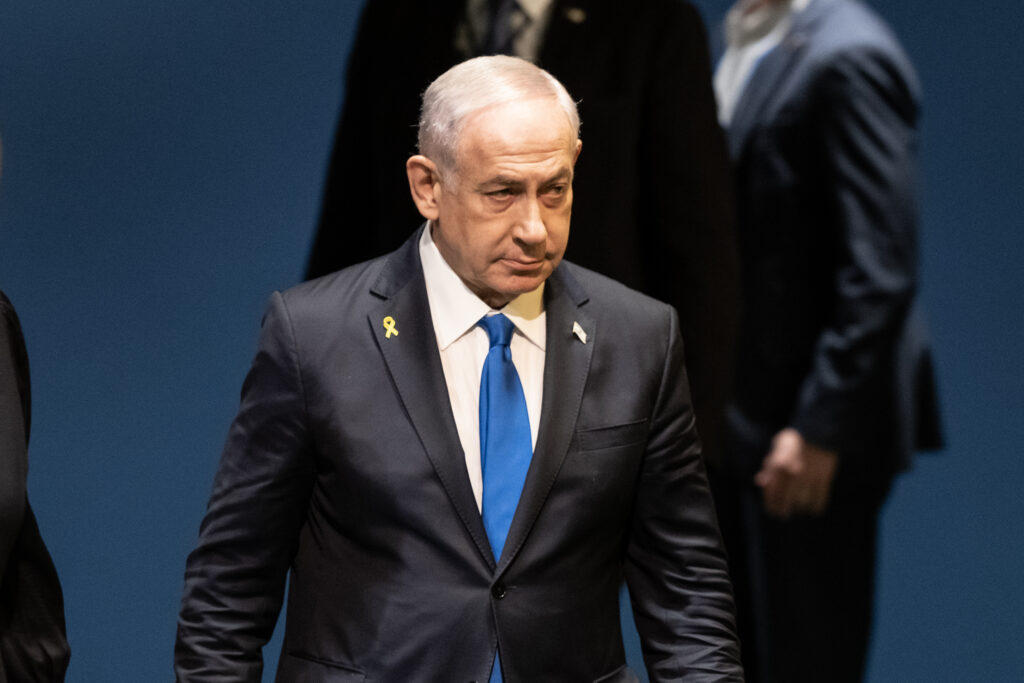Analyses / Middle East / North Africa
21 March 2025
In Lebanon and Syria, Israel Presses Its Strategic Advantage Beyond Its Border

In Lebanon and Syria, Israel Presses Its Strategic Advantage Beyond Its Border
As the Middle East undergoes a phase of geopolitical reconfiguration in the wake of the Hamas attack on 7 October 2023, the strategies of regional powers have been profoundly disrupted. The military defeat of Hezbollah in Lebanon — a prelude to the formation of a new executive — and the fall of the Assad regime in Syria are two major indicators of the paradigm shift currently reshaping the region. This restructuring is taking place in a broader context of renewed power politics and a growing challenge to multilateralism, spearheaded notably by Washington.
In light of these structural changes, Israel is pursuing the development of strategic depth in Lebanon and Syria, relying in particular on a strategy of maintaining the status quo across its northern border through the deployment of troops. This approach reflects the maximalist turn of Israeli colonial policy. Tel Aviv continues its airstrikes and ground offensive in Gaza, against the backdrop of fragile ceasefire negotiations in Doha. As of 21 March, these strikes had killed over 500 people according to Hamas’s Health Ministry, while Operation “Iron Wall” in the West Bank has already displaced more than 40,000 people.
Military Occupations in Lebanon and Syria
In Lebanon, despite the 27 November 2024 ceasefire agreement — brokered by the United States and France — which stipulated Israeli withdrawal from Lebanese territory within 60 days, Tel Aviv has announced it will retain five positions it deems “strategic.” Israeli authorities have justified their continued presence on the grounds that the Lebanese army has not fulfilled its part of the agreement, namely, the military dismantling of Hezbollah south of the Litani River. Israeli Defence Minister Israel Katz further announced that he had received Washington’s “green light” to keep troops in Lebanon.
In addition to maintaining positions, Israel continues its campaign of assassinating Hezbollah leaders. On 7 March, Israel launched its largest missile barrage since the ceasefire came into effect. Despite this military presence, on 11 March, Israeli authorities announced the launch of quadripartite talks with France and the United States, resulting in the creation of three joint working groups: one focused on Israeli positions in Lebanon, another on border disputes, and a third on the issue of Lebanese detainees. However, recent statements by the Israeli Defence Minister and Prime Minister Benjamin Netanyahu contradict any prospect of withdrawal. Both leaders have declared that Israeli forces will remain indefinitely at the five positions in southern Lebanon, regardless of negotiations.
The territorial occupation of southern Lebanon mirrors Israel’s strategy in Syria following the fall of Bashar al-Assad. On 8 December 2024, the Israeli government announced it was ending the 1974 ceasefire agreement with Damascus, which had established a demilitarised zone on the Golan Heights. Soon after, Israeli troops moved into the demilitarised zone overlooking southern Syria. Since then, Tel Aviv has escalated airstrikes targeting military depots and positions in the south. On 18 March, Israeli forces carried out a wave of bombings in the Daraa region, near the Jordanian border, killing at least three civilians. Much like in Lebanon, Tel Aviv is calling for the complete demilitarisation of southern Syria.
Undermining a Fragile Syrian Central Authority by Supporting the Druze Minority
Military pressure on the Damascus regime is accompanied by rhetoric of support for minorities, particularly the Syrian Druze community. Representing around 3% of the population, the Druze are concentrated in the south, near the Israeli border — a region where, during the civil war, numerous armed groups developed a de facto autonomy. The narrative of protecting the Druze minority has long been used by Israel to divide the Palestinian community in the West Bank along sectarian lines. Israel’s own Druze population numbers around 150,000 and enjoys recognised status, including participation in the country’s military apparatus.
In this context, the Israeli Druze community plays a central role, having repeatedly sent food aid to Syrian Druze. Meanwhile, Israeli authorities have exerted pressure on Damascus. Following clashes between Syrian security forces and a Druze militia in the town of Jaramana, southeast of Damascus, Israel’s defence minister threatened to “strike” the regime if it harmed the Druze. These declarations are especially significant given the recent outbreak of sectarian violence in Latakia and Tartus, exposing the new regime’s difficulty in maintaining stability and controlling the myriad armed groups operating in the country.
Damascus, which recently adopted a provisional constitutional declaration guaranteeing “freedom of belief and the status of religious sects,” responded to Israel’s statements by meeting with leaders from the mainly Druze province of Sweida to discuss the community’s representation in the central state. According to Arab media outlets Al Jazeera and Al Arabiya, an agreement similar to the one reached with the autonomous forces in the northeast — which outlines a roadmap for integrating their civil and military institutions — may soon be signed. However, the Druze community remains divided over integration into the state, creating an opening Israel could exploit. While some have already raised the new Syrian flag in Sweida, one of the community’s main spiritual leaders, Hikmat al-Hijri, has rejected any agreement with Damascus. At the same time, Tel Aviv appears to continue instrumentalising Druze representatives, having hosted a delegation of Syrian Druze leaders on pilgrimage on 14 March — a move condemned by Lebanon’s Druze religious council.
Using Security Pressure to Politically Weaken Hezbollah
In Lebanon, such a strategy — already attempted with Christian groups in the south during the civil war — is ineffective. The Druze community, comprising around 5% of the population, has historically aligned with Arab nationalist movements and remains deeply committed to the Palestinian cause. Its emblematic leader, Walid Jumblatt, has denounced Israel’s attempts to “fragment the region.” He is also close to the new Syrian government and was the first senior Lebanese official to visit Damascus following Assad’s fall.
Nonetheless, Israel may exploit the security pressure it exerts on the Lebanese executive to destabilise the country. In February, Israeli authorities threatened to bomb Beirut International Airport if planes from Iran were allowed to land. As a result, Lebanon’s new authorities banned Iranian aircraft from landing, sparking anger among Hezbollah supporters in southern Beirut, who decried what they saw as the government’s capitulation to Israeli diktats.
Faced with Israeli pressure, the new Lebanese authorities appear keen to accelerate the disarmament of Hezbollah in the south. The issue was raised during a Cabinet meeting on 13 March, driven by ministers opposed to the Shia party. However, the new government must maintain a delicate balance, as Hezbollah still enjoys strong popular support within its community. As such, the disarmament process may take the form of a “national defence strategy” aiming to integrate Hezbollah’s weapons into the regular armed forces. Furthermore, the militia’s military weakening has prompted some of its leaders to welcome dialogue that could legitimise their arsenal.
For its part, Israel opposes both the legitimisation of Hezbollah’s weapons and the development of a strong national army on its northern border — even though the latter is the only realistic means of achieving disarmament. Tel Aviv has various levers to ensure a weak army on its northern frontier. In 2010 and 2014, Franco-Saudi initiatives to equip the Lebanese army were partially blocked by Israel. Moreover, Lebanon’s under-equipped and understaffed forces are heavily reliant on American aid, which accounts for over 90% of their equipment supply. Here too, Israel has means of exerting influence. On 5 March, a pro-Israel US lawmaker submitted a bill conditioning all military aid to Lebanon on the government revoking Hezbollah’s legitimacy.
Israel’s assertiveness in Lebanon and Syria is fuelled by a geopolitical context favourable to the projection of power. The presence of Donald Trump’s United States — a staunch supporter of Israeli colonial policy — as an influential actor in Lebanese and Syrian politics is a boon for Tel Aviv’s regional ambitions. However, recent revelations of direct talks between the Trump administration and Hamas representatives may unsettle Israeli leaders, reminding them that while Washington is an unreliable partner for Europeans, it can also be so for Israel. A reminder that might prompt strategic caution — or, conversely, encourage Israel to push as far as possible while the opportunity lasts.

